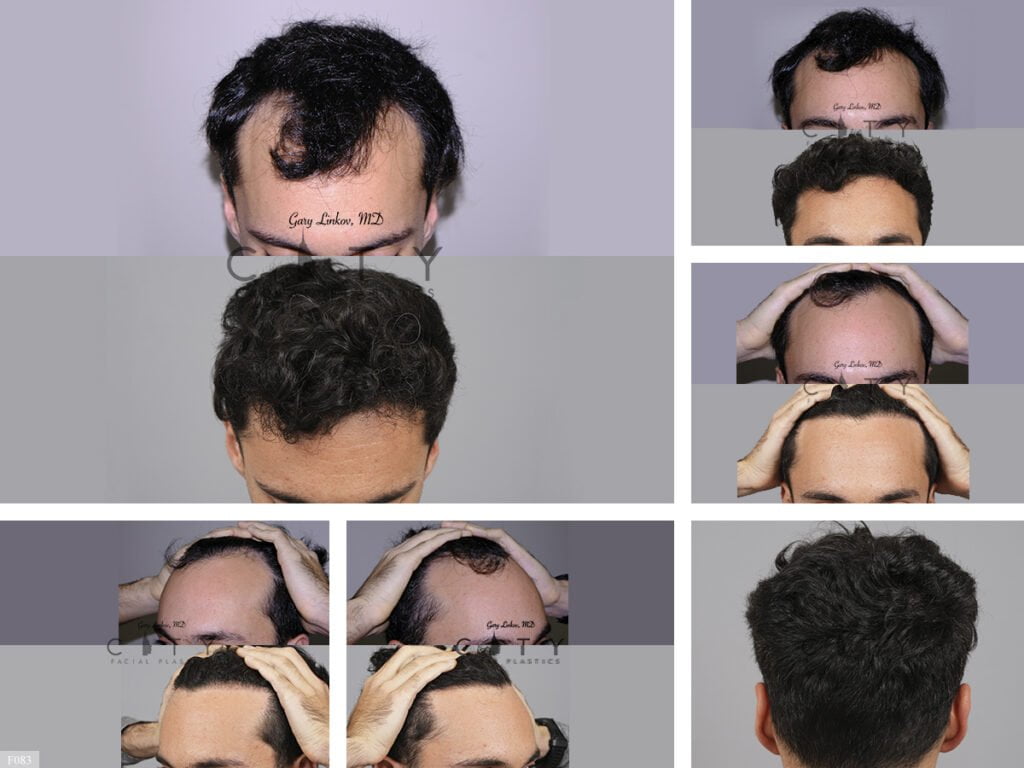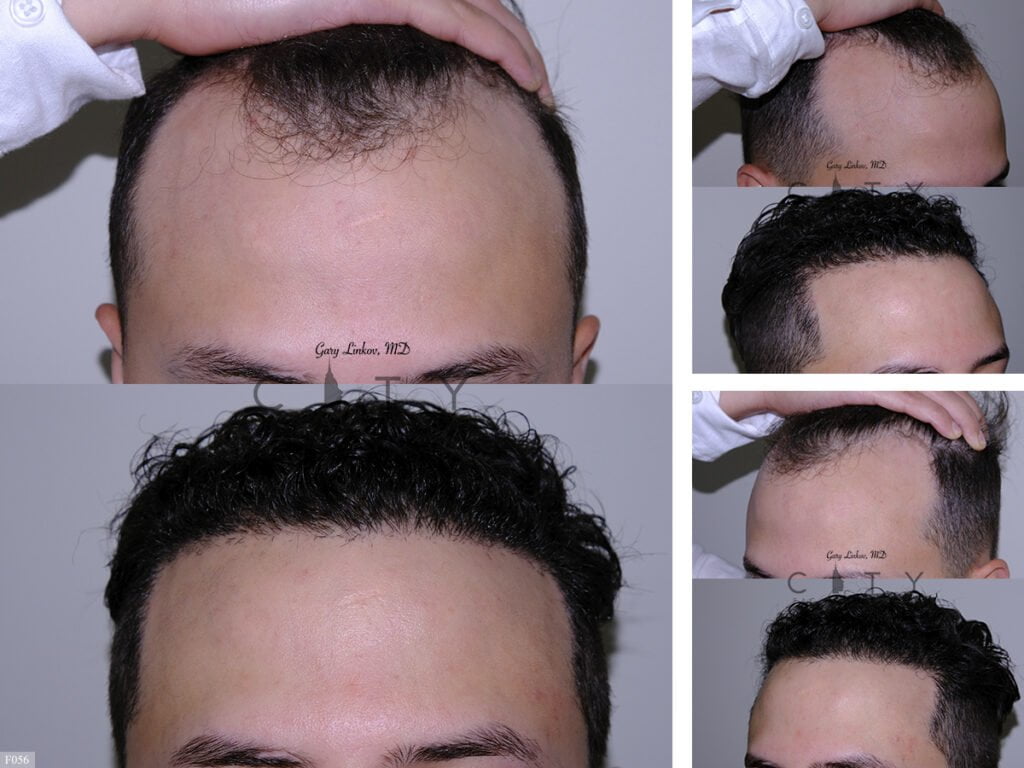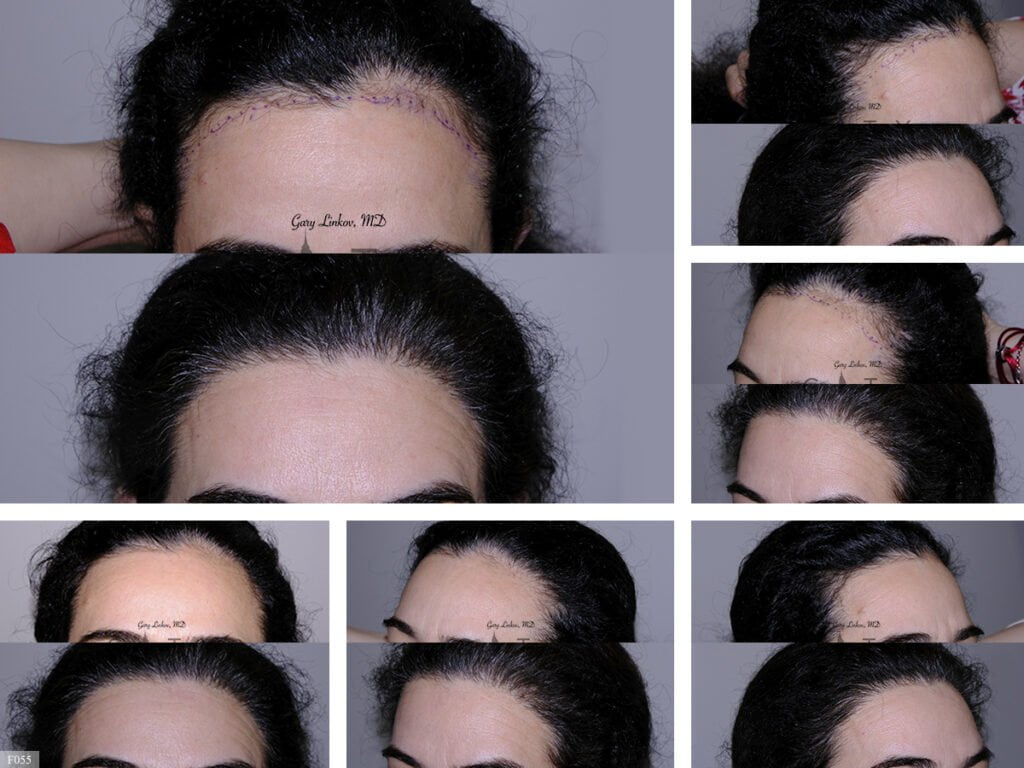Vitamin D Deficiency
Sometimes, the simplest change in diet or lifestyle can have huge ramifications. Avoiding sunlight, for example, may cause you to become deficient in vitamin D and thus develop a vitamin D deficiency hair loss condition. Fortunately, the only vitamin D hair loss treatment you may need just consists of vitamin supplements and going outdoors for a few minutes every day. But when you need more thorough treatments, call the experts at our hair restoration office in Manhattan. A top doctor in the field of hair loss provides a slew of hair loss treatment options.
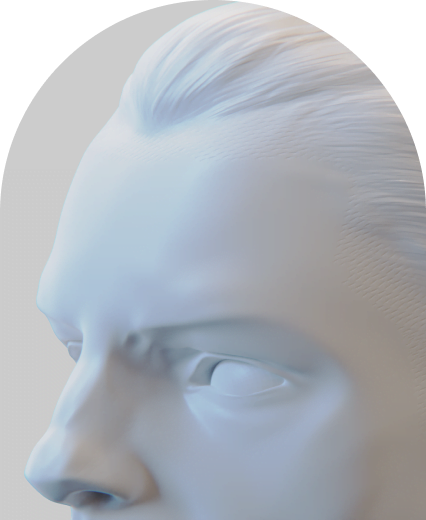
Can a Deficiency in Vitamin D Cause Hair Loss?
If you’re experiencing balding or thinning hair, consult an experienced medical professional who’s trained to pinpoint the cause. Nutritional deficiencies, such as levels of vitamin D that are too low, can impact hair growth or trigger hair loss. To find out whether vitamin D deficiency is partly to blame for hair loss, you need to visit a top NYC hair restoration doctor. After a physical exam that includes a thorough medical and dietary history, you find out if you have risk factors for possible nutrient deficiencies.
At Linkov Hair Surgery, you meet Dr. Gary Linkov, a top doctor in the field of hair loss. He’s the best choice in the Manhattan area to find the cause and determine the most effective treatment options for hair loss for both men and women. With the right diagnosis and treatment, you may be able to stop or slow vitamin D deficiency hair loss and likely experience regrowth and restoration.

What Types of Hair Loss Are Caused by Nutrient Deficiency?
Vitamins are substances needed for normal growth, development and functioning of your body’s cells. When important nutrients, such as vitamin D or iron, are missing from your diet or the dosage has been inadequate, you may experience a variety of health problems, including hair shaft abnormalities and hair loss. The types of hair loss that may be related to inadequate vitamin D intake include:
- Androgenetic alopecia This type of hair loss includes female pattern hair loss and male pattern baldness. It’s a hereditary condition that’s caused by a combination of genetic, hormonal and environmental factors.
- Telogen effluvium In this condition, sudden weight loss and decreased intake of protein and other important nutrients can trigger shedding more hair than usual. Telogen effluvium can also be caused by extreme stress.
- Alopecia areata This is an autoimmune disease in which the body turns on itself, specifically your hair follicles. People with this type of alopecia are often deficient in vitamin D.
Getting adequate amounts of vitamin D supports hair growth and regrowth. Vitamin D plays a major role in the health of your hair and skin, particularly when it comes to creating new hair follicles. This vitamin helps you absorb nutrients, such as calcium and phosphate. It reduces inflammation and controls infection.
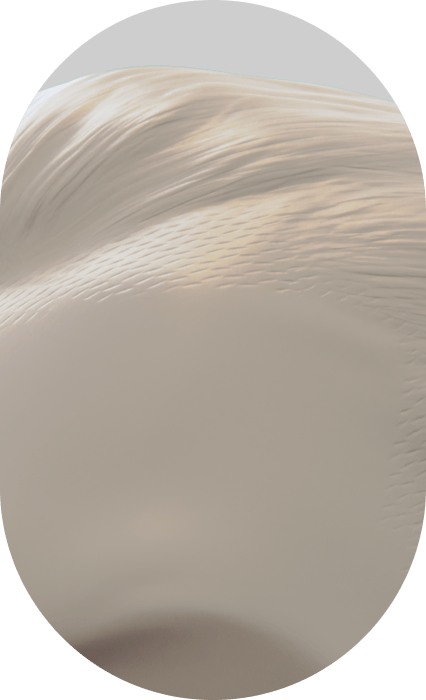
What Are the Symptoms of Insufficient Vitamin D?
When you have levels of vitamin D that are too low, it’s not always apparent. If your vitamin D levels are low enough, the symptoms you may experience besides hair loss include:
- Chronic pain
- Constant fatigue
- Muscle weakness
- Reduced bone density
- Bone fractures that are frequent
- Wounds healing slowly
- Mood changes
- Depression
- Anxiety
If you’re losing a lot of hair and have any of the above symptoms, have your levels of vitamin D checked by a doctor. If having low levels of this vitamin is a factor in your hair loss, it’s a treatable problem that prevents continued hair loss. When testing for vitamin D deficiency, the best doctors typically run other types of bloodwork as well. Tests can determine if you have other issues, such as anemia or a hormonal imbalance, which often accompany nutritional deficiencies.
What Causes Vitamin D Deficiency?
The main source of vitamin D is photosynthesis in the skin, so spending an insufficient amount of time outdoors is frequently the cause of having low levels of this important nutrient. People whose skin burns easily may limit sun exposure and reduce their vitamin D levels. Living in an area that has very little sunlight can make it difficult to get an adequate amount. Other possible causes include:
Medical conditions Some underlying medical conditions, such as Crohn’s disease or celiac disease, can stop the body from absorbing nutrients.
Medications Some medications — such as anti-convulsants, anti-fungals and medications used to treat HIV — interfere with your body’s ability to use vitamin D effectively
People who have dark skin pigmentation produce less vitamin D in response to sunlight. Lifestyle choices sometimes have an impact on levels of vitamin D as well. There seems to be a connection between obesity and low levels of vitamin D. Smoking also affects your ability to absorb an adequate amount of nutrients.
What Are Options for Vitamin D Deficiency Hair Loss Treatment?
If inadequate vitamin D is contributing to your hair loss, it’s usually reversible. Correcting the deficiency helps slow hair loss. Vitamin D hair loss treatment includes:
- Taking supplements Vitamin D supplements are available in both pill and liquid form. Check with your doctor to see how much you should take.
- Increasing time in the sun If feasible, try to spend a short amount of time outdoors getting direct sunlight each day. Ask your doctor about safe ways to increase sun exposure
For the best possible overall health, consume a healthy diet. A well balanced diet includes foods that contain vitamin D naturally or through fortification, such as:
- Egg yolks
- Fatty fish and fish oils
- Vitamin fortified cereals
- Milk or orange juice fortified with vitamin D

What Are Other Ways to Treat Hair Loss?
Multiple factors may contribute to hair loss, and even if your bloodwork shows you’re low in vitamin D, there may be other things triggering hair loss. Besides increasing levels of vitamin D, your NYC hair loss doctor may recommend other forms of treatment such as:
- Topical or oral medications, such as minoxidil or finasteride
- Platelet rich plasma infusions
- Laser therapy
- Hair replacement systems, such as wigs or toupees
Hair transplants are an ideal option if supplementation and medication aren’t working. This is a surgical procedure in which hair follicles are transplanted from a donor area, usually the back of your head, and implanted in an area where you need more hair. Contact the experts at Linkov Hair Surgery to get the best form of hair loss treatment for you at the best price. Schedule a consultation today.
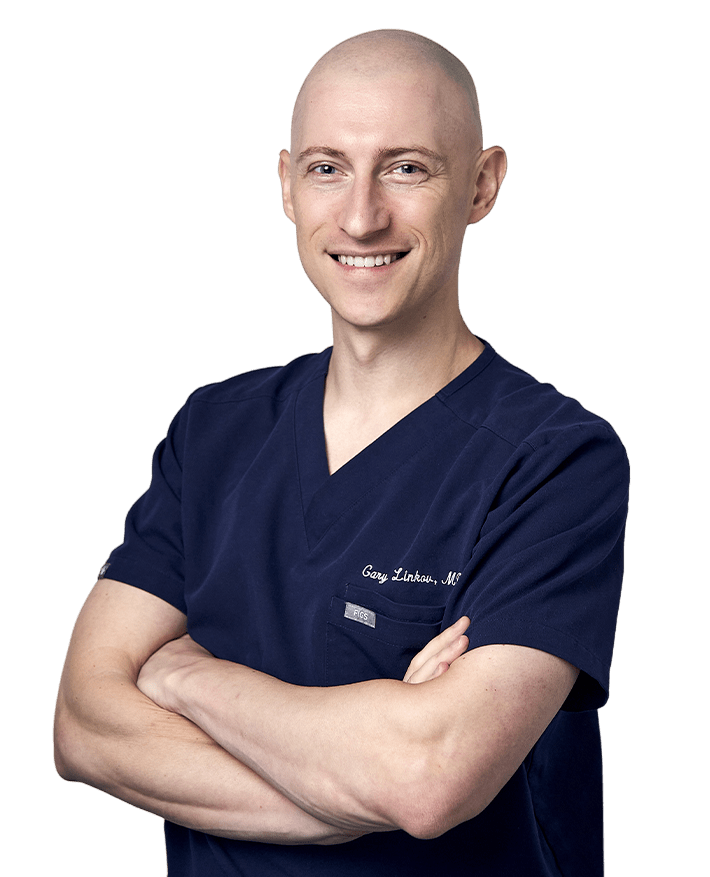
Dr. Gary Linkov is an experienced Ivy League-educated hair transplant surgeon. Having suffered from hair loss himself, he treats his patients with compassion using a multi-disciplinary approach based on the latest hair regrowth methodologies and technologies.
He has authored numerous peer-reviewed articles and book chapters, contributing to the field. Dr. Linkov’s expertise in hair transplant surgery has earned him recognition and made him a sought-after physician. He was featured on the Dr. Oz Show for his needleless PRP hair restoration procedure. USA Today ranks him among the top three plastic surgeons in the United States for reconstruction and natural-looking results.
Publications More about Dr. LinkovLinkov Hair Surgery
150 E 56th St, #1A
New York, NY 10022
(212) 970-9404


